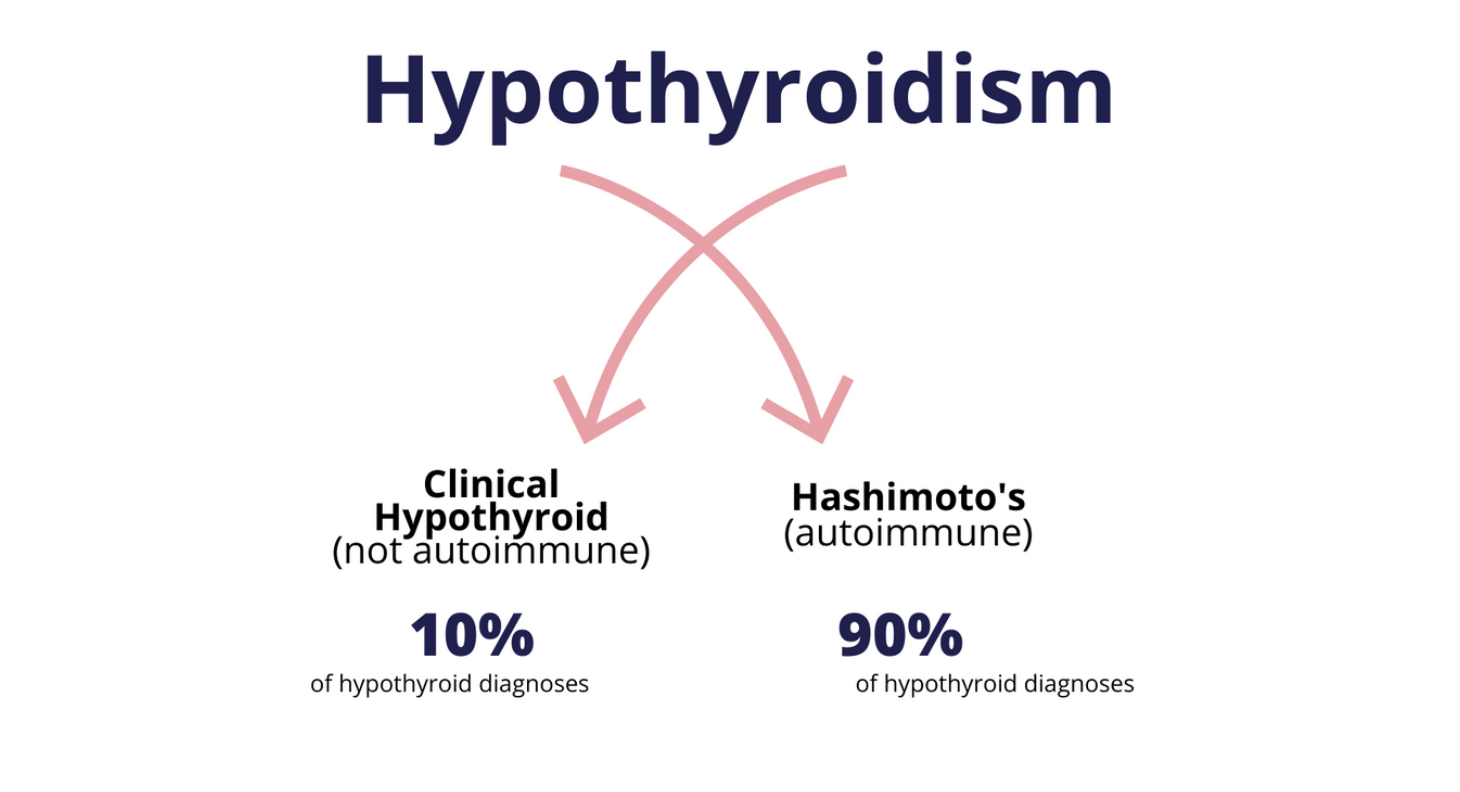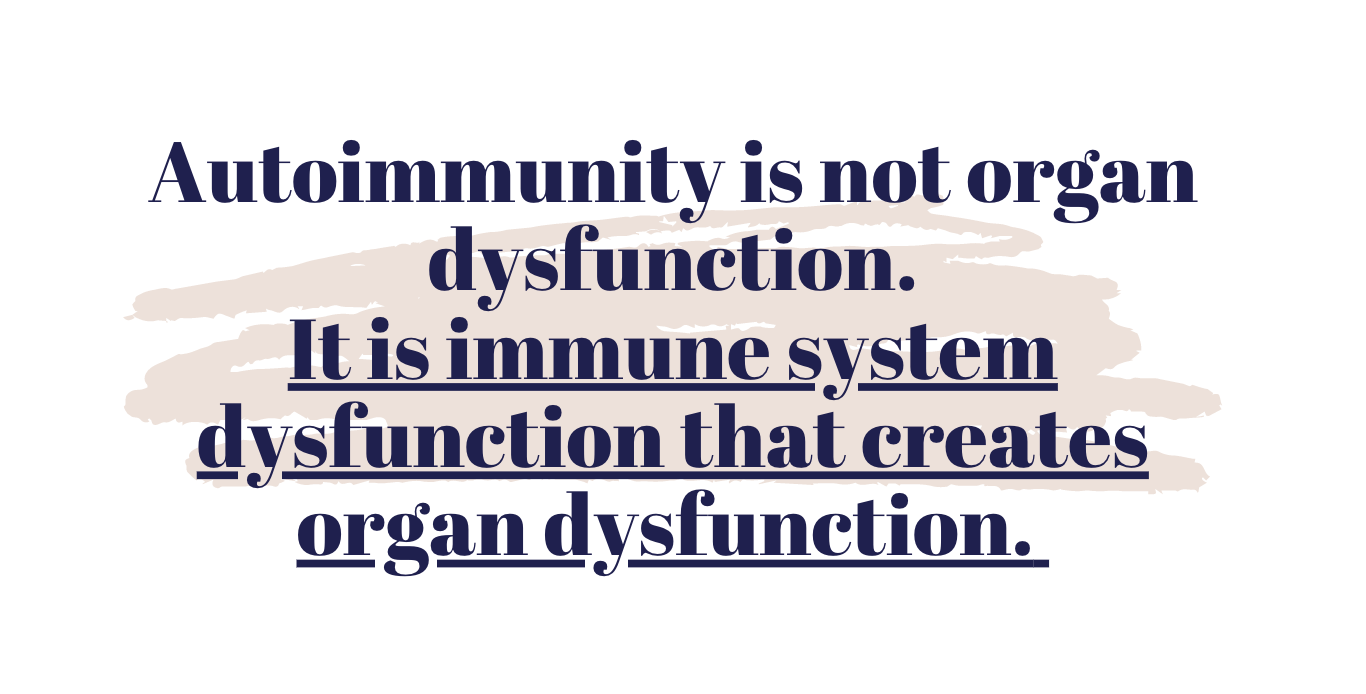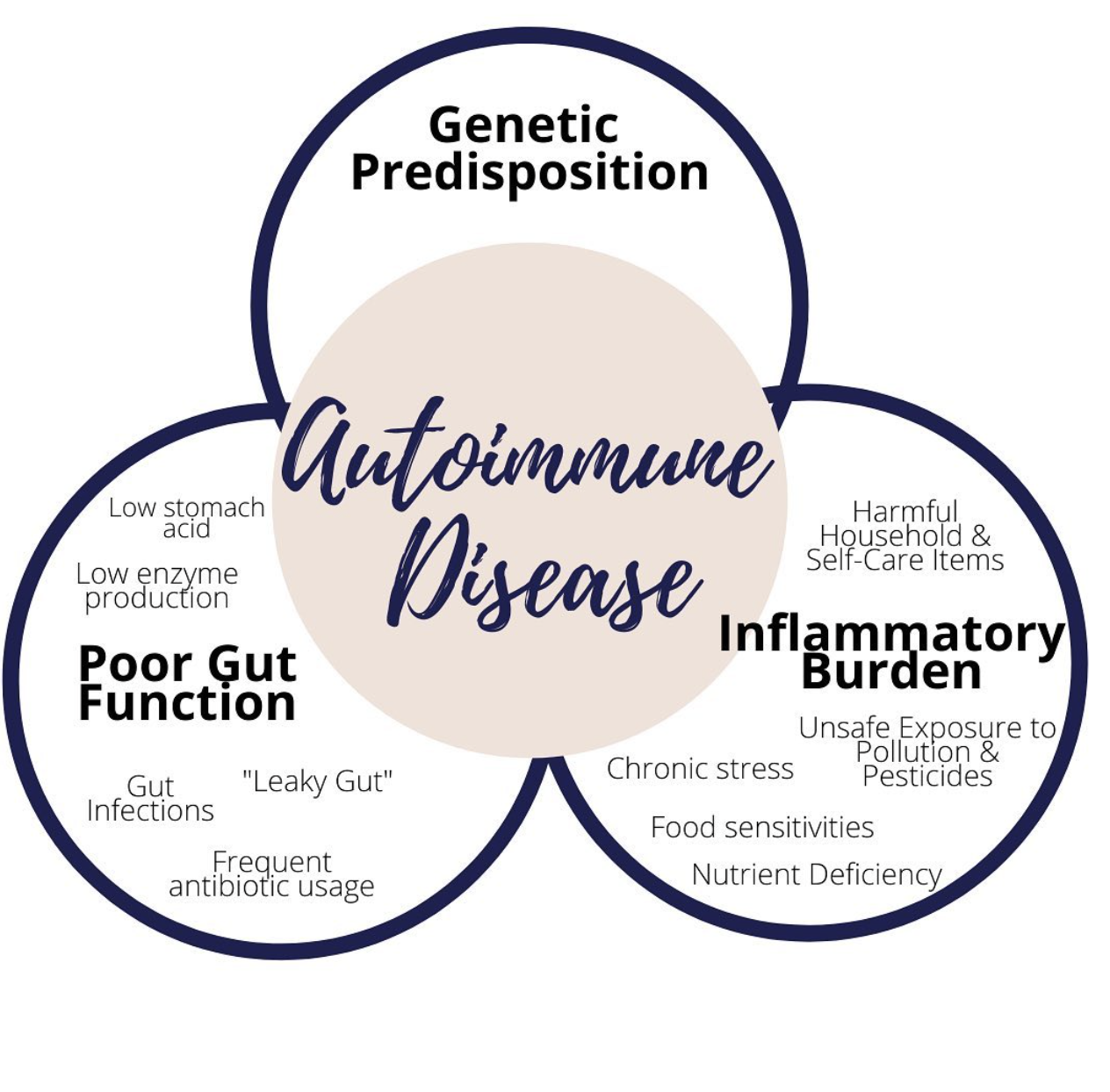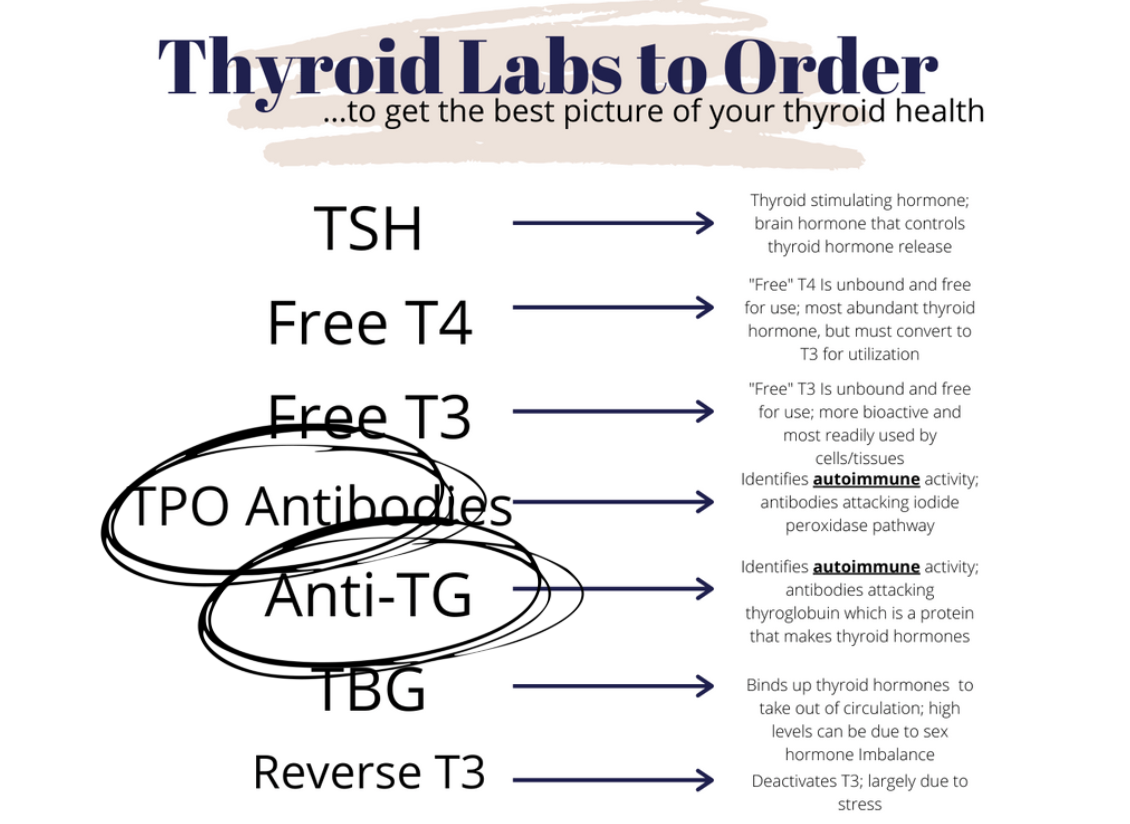Understanding the root cause of your hypothyroidism is a crucial first step in managing your thyroid health effectively. To get there, we need to address the two primary categories of hypothyroidism: autoimmune and non-autoimmune.
Previously, I focused on disruptions in thyroid hormone production, but today, let’s dive deeper into identifying your root cause. Whether your hypothyroidism is autoimmune or non-autoimmune can dramatically influence the steps you take to support your thyroid health.
Alright, let’s break this down together!

When determining why hypothyroidism developed, the first question to ask is: Is it autoimmune in nature?
If you’re wondering, “What the heck is autoimmunity?”—you’re not alone! Here’s a simplified explanation:
Autoimmunity occurs when your immune system, designed to protect you from harmful invaders like bacteria, viruses, and toxins, mistakenly attacks healthy tissues in your body. Think of it as a case of mistaken identity—your immune system becomes confused and starts targeting the wrong thing.
In the case of Hashimoto’s thyroiditis (the most common cause of hypothyroidism), your immune system attacks your thyroid gland. Over time, this immune attack can reduce your thyroid’s ability to produce hormones, leading to hypothyroidism.
Simply put: Autoimmune = a confused immune system attacking your thyroid.
Here’s the kicker: the majority of hypothyroidism cases are autoimmune—yet this is rarely discussed. Why?
From a conventional medical perspective, the standard treatment for hypothyroidism is thyroid hormone replacement therapy (e.g., levothyroxine). This approach doesn’t change regardless of whether the condition is autoimmune or not, which is why many providers don’t prioritize screening for thyroid antibodies.
But here’s the big deal: Knowing whether you have autoimmune hypothyroidism gives you power. It allows you to address the root cause by making specific diet and lifestyle changes that can help calm your immune system.
Your immune system has an amazing capability called “adaptation.” This means it can respond to signals from your environment, including your:
While these changes may not always lead to complete remission, they can significantly slow the progression of autoimmunity and improve how you feel day to day.

Ready to dig into your labs? Here’s what to look for on a complete thyroid panel:
If either of these antibodies is elevated, it’s a strong indicator that your hypothyroidism is autoimmune (Hashimoto’s).
Pro Tip: If you’re newly diagnosed with hypothyroidism, ask your provider to check for antibodies. Many clinicians only test once—often at the time of diagnosis—so you might need to dig into older lab results to find this information.

Autoimmune hypothyroidism doesn’t develop overnight—it’s a progressive condition. Detecting it early gives you an opportunity to:

Knowing whether your hypothyroidism is autoimmune or not is a game-changer. While thyroid hormone replacement is essential for managing symptoms, understanding the why behind your condition can help you take actionable steps to optimize your health.
Autoimmune hypothyroidism doesn’t have to feel like a life sentence—you have more control over disease progression than you think. Through strategic dietary and lifestyle changes, you can support your thyroid, calm your immune system, and reclaim your energy and vitality.
Want to learn more? Stay tuned for my next post, where I’ll dive deeper into how specific foods and stressors impact autoimmunity—and what you can do about it!
Ready to take control of your thyroid? Click here to work with our team of thyroid experts!

EMAIL:
hello@chewsfoodwisely.com
VIRTUAL APPOINTMENTS ONLY
Business Mailing Address:
2525 Robinhood Street
Houston, Texas 77005
© 2025 Chews Food Wisely. All Rights Reserved. Website Designed by Brandify Collective
Disclaimers | Privacy Policy | Terms of Purchase | Terms and Conditions